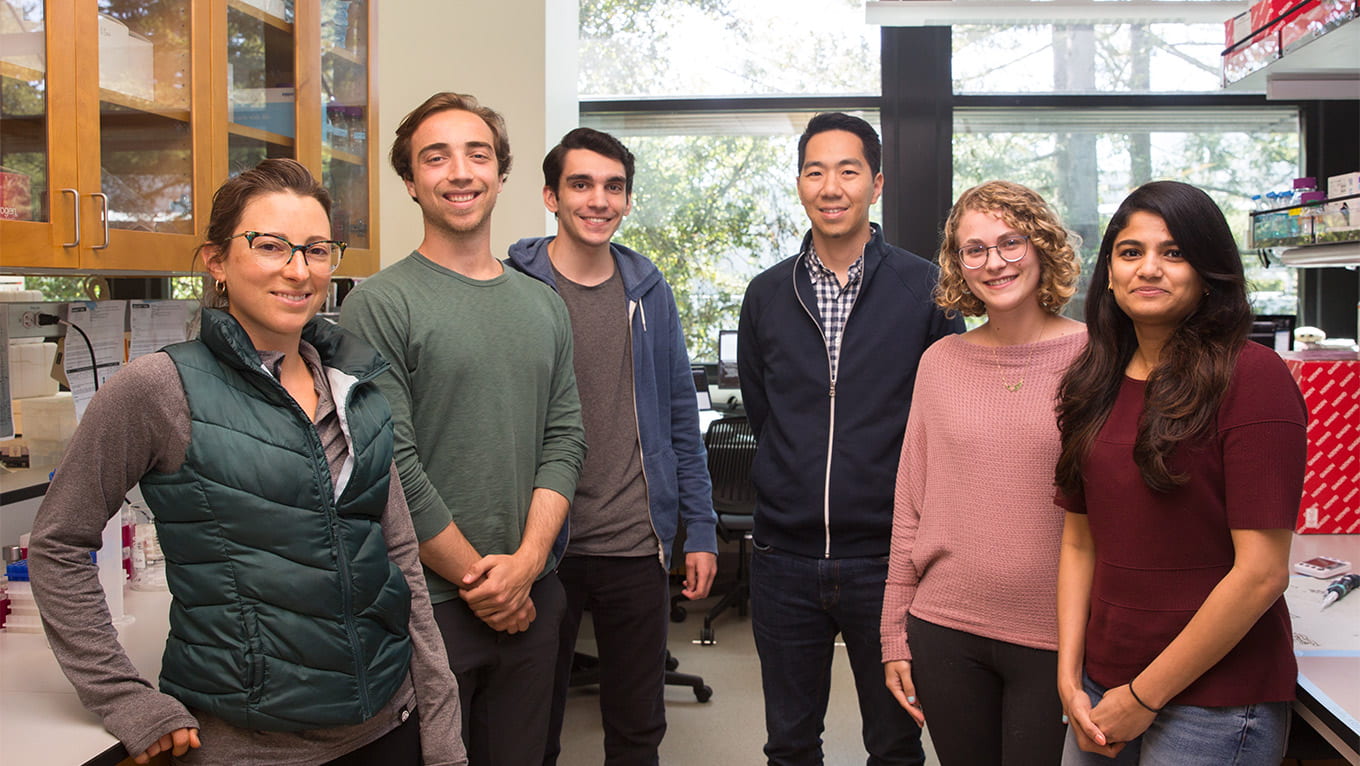Whether it was someone close we lost or a friend of a friend who received a cancer diagnosis, cancer is far too frequently intersecting our lives. Many times cancer diagnoses come too late, greatly reducing the chance for survival. But what if millions of lives could be saved annually through a simple, non-invasive cancer early detection test?
That was the topic of discussion during last week’s UC Santa Cruz Kraw Lecture, “Precision Health For All Through RNA,” featuring Daniel Kim, assistant professor of biomolecular engineering at the UC Santa Cruz Baskin School of Engineering. Kim, an American Cancer Society research scholar, presented his lab’s cutting-edge research in enabling cancer early detection through the power of RNA.
Kim offered jarring, eye-opening statistics, such as “approximately 40% of men and women will be diagnosed with cancer at some point in their lives” and “there are close to 10 million deaths worldwide from cancer each year,” to emphasize the importance of producing a screening tool that can test for any kind of cancer years before symptoms arise.
Many early-stage cancers are often missed during blood tests as current tests rely on the secretions of the cancer’s DNA in the bloodstream, which is not always reliable. Instead of looking for DNA, Kim explained that we should be focusing on RNA. More than 75% of our human genome generates RNA and only 1–2% of that RNA is translated into proteins, with the rest becoming noncoding RNA, also known as “dark matter.”
Kim and his lab, who study this dark matter, recently discovered a change in the cell environment caused by a genetic mutation that occurs early on in cancer development. This change releases RNA biomarkers into the bloodstream, which are a much stronger signal than DNA and can be picked up by a liquid biopsy while the cancer is still in its earliest stages.
By focusing on noncoding RNA, Kim hopes to create an accessible, RNA-based, multi-cancer early detection test. The test would be a simple blood draw, where the RNA molecules can then be easily sequenced through a nanopore sequencing technology device like the ones first developed by UCSC faculty David Deamer and Mark Akeson and later patented to Oxford Nanopore Technologies.
If cancer gets discovered in its earliest stages through an RNA liquid biopsy, then there is greater opportunity for personalized treatment plans. With the highly sensitive and specific nature of the proposed RNA-based test, the results would provide doctors great insight into determining how aggressive or minimal treatment should be and delivering a course of treatment that takes into consideration factors like the patient’s genetic history and overall health of tissues and organs.
To learn more about this impactful research, visit the Daniel Kim Lab website. The recorded Kraw Lecture is available to view on the Baskin Engineering YouTube channel.




